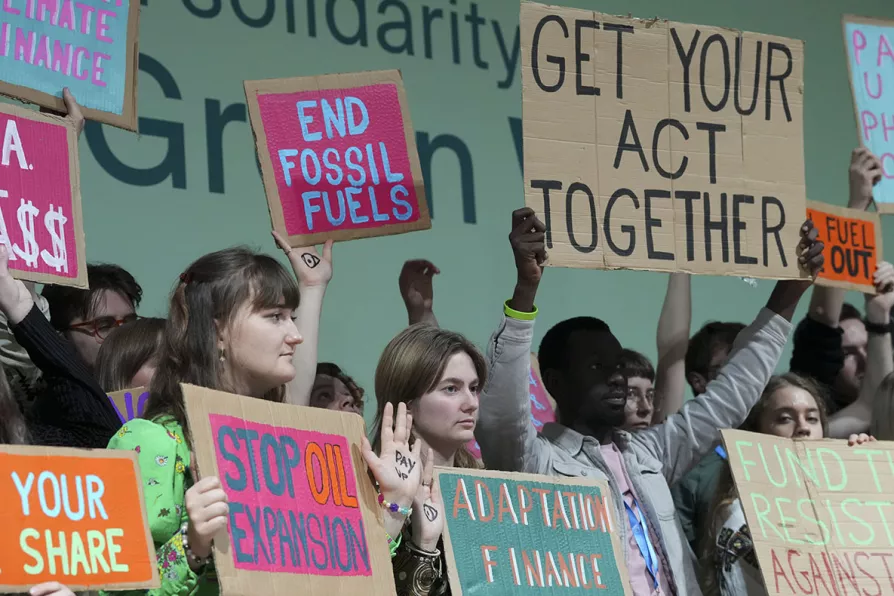New climate justice cash draft deal ‘angered’ developing nations

 Activists participate in a demonstration against fossil fuels at the COP29 U.N. Climate Summit, November 22, 2024, in Baku, Azerbaijan
Activists participate in a demonstration against fossil fuels at the COP29 U.N. Climate Summit, November 22, 2024, in Baku, Azerbaijan
A NEW draft of a deal on cash to adapt to climate change released today afternoon at the United Nations climate summit (Cop29) “angered” developing nations.
The new draft deal set out in Azerbaijan capital Baku pledged just $250 billion (£198bn) by 2035 from wealthy countries to poorer ones.
The amount is more than double the previous goal of $100bn (£79bn) a year set 15 years ago, but it’s less than a quarter of the amount demanded by developing nations struck hardest by extreme weather.
Similar stories

From summit to summit, imperialist companies and governments cut, delay or water down their commitments, warn the Communist Parties of Britain, France, Portugal and Spain and the Workers Party of Belgium in a joint statement on Cop30













